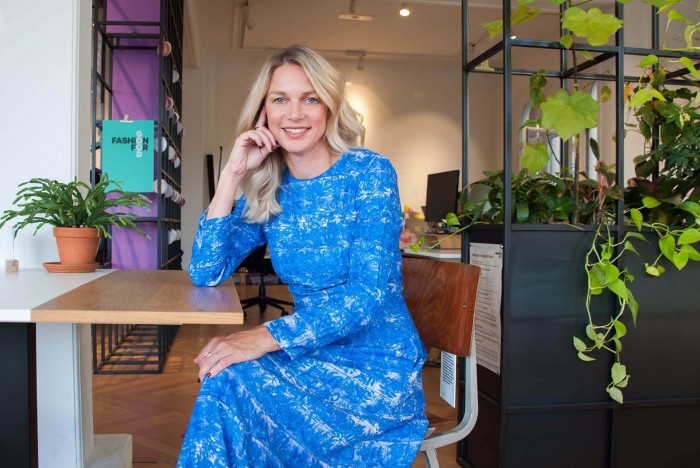A 2018 graduate of Saïd Business School with a Diploma in Global Business, Orsolya founded PutON; a company providing employment for survivors of conflict-related sexual violence within the high-end fashion and hospitality sector.
The inspiration for PutON began in 2014 when she was working in Bosnia on behalf of the United Nations. Orsolya was drafting the program of empowerment for survivors of conflict-related sexual violence.
During that time she attended a fashion show showcasing the work of survivors working within a development program. “I realized that many of these empowerment programs didn’t connect survivors with sustainable forms of employment afterwards and I wanted to provide a solution,” Orsolya explains.
“PutON is a label which builds on what is already there,” she says, describing the business model as linking the end result of training programs (skilled workers) with the market for handmade items.
“We match skills with demand in a flexible manner,” she continues, “it’s a collaborative process with clients where what we produce depends on what they want.”
Orsolya cites this client engagement as fundamental to the sustainability of the business. Clients are confident in the products because they are directly involved in setting up the supply chain in the way they want it to work. This means longevity to the partnerships and continuous employment for workers.
She explains that one of the aims of PutON is to link with as many stakeholders as possible in order to influence a fundamental change, away from faceless mass production, within fashion manufacturing.
She hopes that PutON is able to lead by example, highlighting—through the success of future partnerships—that CSR and sustainability should infiltrate into the very core of good business strategy.
“Ethical textiles enhance the creative industries,” she says, “really caring about the people making the clothes improves the quality of production physically and socially. A sustainable business will always be more fruitful in the long run.”
Recently, PutON became a member of the Fashion for Good community. This access to a network of like-minded professionals has accelerated the company’s progress in recent months, according to Orsolya.
She identifies hubs of expertise as crucial to embarking on any venture. Saïd Business School was exactly that. “There’s a huge support network active daily,” she says.
“My class have been incredibly helpful. I feel lucky to be part of a community, with backgrounds from over 35 countries, which understands the issues PutON deals with and educates us with global perspectives.”
Orsolya studied the Oxford Diploma in Global Business having received one of the school’s Diploma Scholarships for Women. “I would not have been able to do the program, and consequently found PutON, without it,” she explains.
Orsolya thinks that the scholarship and subsequent diploma are beneficial beyond her personal experience as well; “Investing into me meant investing into PutON and consequently a bigger circle of women who would, in turn, be inspired to pursue their own ventures,” she says.
The first round of production for PutON is soon to commence and Orsolya says she is aiming for the label to work with prominent fashion houses, such as Stella McCartney, within the next few years.
RECAPTHA :
41
ef
b9
a8







